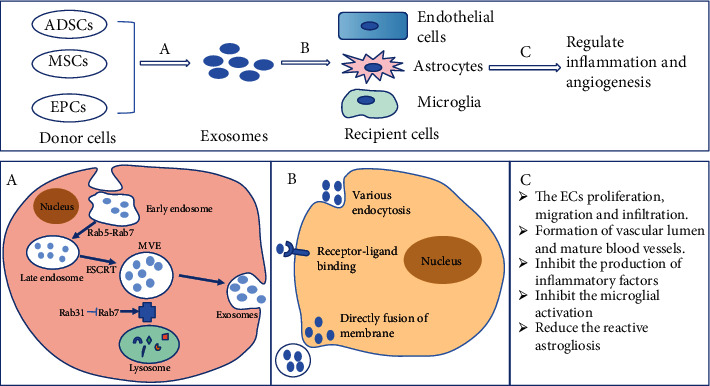Figure 1.

Summary of the exosomal secretion, uptake, and the effect of regulating inflammation and angiogenesis. Process A represents the exosomes derived from donor cells such as ADSCs, MSCs, and EPCs. This complex process is relevant to the formation of early endosomes, early endosomes mature into late endosomes, and MVEs fuse with the cell membrane and secrete exosomes. Process B is exosomes that bind to the central nervous system cells such as microglia, astrocytes, and endothelial cells through specific molecular interactions, the direct fusion of membrane, and various endocytosis. Process C shows the effect of exosomes in regulating inflammation and angiogenesis by promoting the formation of the blood vessel and suppressing the production of neuroinflammatory mediators following stroke. Abbreviations: ADSCs: adipose-derived stem cells; MSCs: mesenchymal stem cells; EPCs: endothelial progenitor cells; MVEs: multivesicular endosomes; ESCRT: endosomal-sorting complex required for transport.
